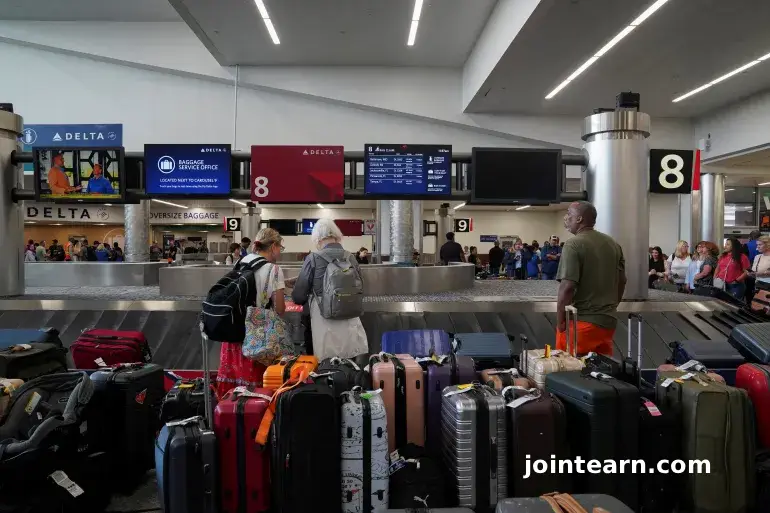
Washington, D.C. – November 14, 2025 – The U.S. Department of Transportation (DOT) has announced that it will officially withdraw the airline delay compensation rule, which would have required carriers to pay passengers for extended flight delays. The decision was first signaled in September and has now been formally enacted under the Trump administration.
Background: Airline Delay Compensation Plan
The compensation plan was initially proposed under the Biden administration and sought public comment in December 2024. It aimed to require airlines to pay passengers $200 to $300 for domestic flight delays exceeding three hours, with compensation rising to $775 for longer, unspecified delays.
While the plan received bipartisan attention, the Trump administration called it an “unnecessary regulatory burden” and moved to scrap the rule, citing its potential impact on airline operations and costs.
“Abandoning this plan allows airlines to compete on the services and compensation they provide to passengers rather than imposing new minimum requirements through regulation,” the DOT said in a statement.
Political Response
Last month, a group of 18 Democratic senators urged the administration to maintain the compensation rule, arguing it was a “common-sense proposal” to help families offset unanticipated costs caused by airline delays. Among the signatories were Richard Blumenthal, Maria Cantwell, and Ed Markey.
Despite the pressure, the Trump administration has confirmed the rollback, reaffirming its stance that U.S. airlines are not required to compensate passengers for delays, although they must refund fares for cancelled flights.
Comparison with International Standards
Many other countries have enacted airline delay compensation laws, including:
- European Union – guarantees cash compensation for delays and cancellations.
- Canada – enforces passenger rights for flight disruptions.
- United Kingdom and Brazil – require compensation for significant delays.
In contrast, U.S. airlines, including major carriers like American Airlines, Delta, United, Southwest, and JetBlue, currently provide no guaranteed cash payments for delayed flights.
Additional Regulatory Changes
The DOT also announced plans to review and revise rules on ticket pricing and disclosure, including:
- Rescinding Biden-era regulations requiring airlines to disclose service fees alongside airfares.
- Redefining what constitutes a flight cancellation eligible for passenger refunds.
- Reducing regulatory burdens for airlines and ticket agents while maintaining transparency for consumers.
Industry and Market Impact
Airline stocks reacted cautiously to the news. Midday trading showed:
- American Airlines: down 1.2%
- United Airlines: down 1%
- Delta Airlines: down 1.3%
- JetBlue: down 3.6%
- Southwest Airlines: down 0.2%
The airline industry continues to recover from delays and cancellations caused by the longest U.S. government shutdown in history, which ended earlier this week. According to FlightAware, approximately 1,000 flights remain delayed and 615 flights have been cancelled across the country.


Leave a Reply